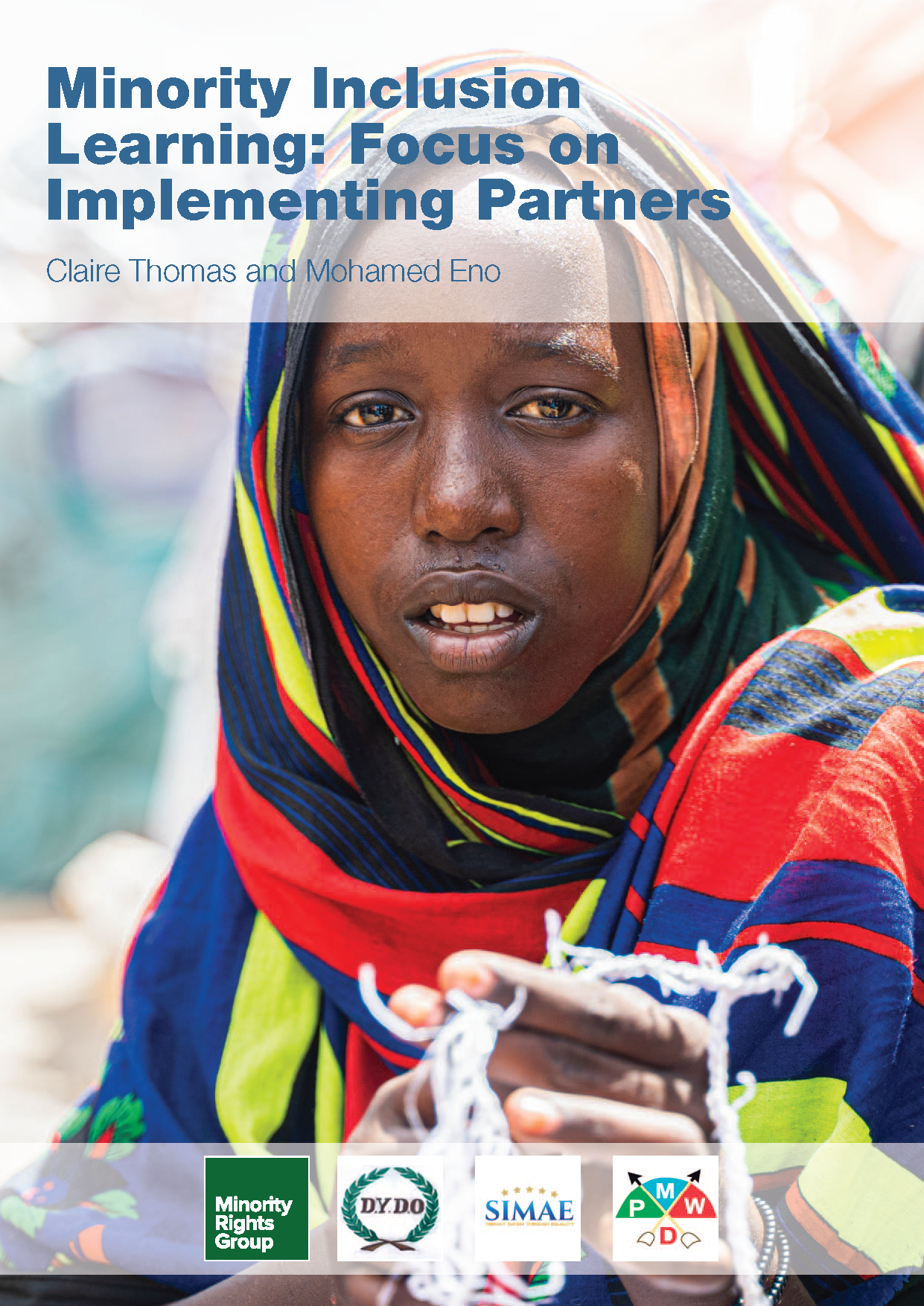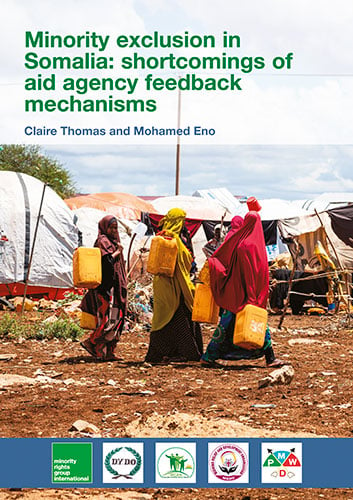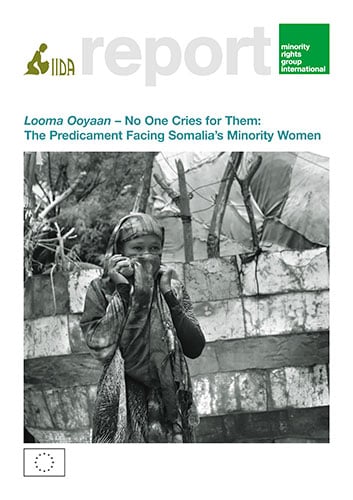
Minority Inclusion Learning: Focus on Implementing Partners
In 2021, the Swiss Agency for Development and Cooperation (SDC) commissioned Minority Rights Group (MRG) to undertake a minority inclusion learning review of their programmes in the Horn of Africa covering Somalia including Somaliland, northeastern Kenya and southeastern Ethiopia. The focus of the work was on ethnic, linguistic and religious minorities, as described in key UN texts. The results were mixed, with work in Kenya showing strong minority inclusive elements but work in Somalia showing that minorities faced significant levels of exclusion in both aid and development interventions. The publication of the report and linked advocacy by minority-led organizations, MRG and SDC as well as other like-minded donors caused significant shifts in attention towards minorities by the aid sector in Somalia.
In 2024, SDC asked MRG, working with three local minority-led partner organizations (DYDO, PMWDO and SIMAE), to revisit the issue to assess the extent to which minority inclusion had changed. Noting that the first study had been undertaken at the level of the portfolio as a whole (which had prevented the surfacing of direct relationships between Swiss inputs -into mostly large multi-donor efforts- and the exclusionary results after many intervening steps), it was agreed that this study would take a local approach, identifying initiatives where effects were expected to be felt in a limited geographical area, beneficiaries of Swiss interventions could be identified and a sample could be interviewed, so as to ascertain whether they were minorities or not and to understand their experience of the intervention. The fieldwork was initiated in four locations: Rabdhure/Bakool region; Baidoa/Bay region; Hargeisa/Somaliland; and Garowe/Puntland (although one of these locations was ultimately found not to meet the study criteria). The interventions that were studied ranged from cash for food and resilience programming to participation in local government dialogues.
Overall the minority inclusion review found that SDC’s Implementing Partners (IPs) were aware of potential minority exclusion, most were knowledgeable about minorities in their areas of operation and a reasonable proportion of the overall beneficiaries belonged to minorities.
On the other hand, while being aware of minorities at community level, most Swiss IPs were not able to identify minorities among their beneficiaries at the level of households or individuals, and were still extremely reluctant to ask direct questions about minority status (this is discussed more below). Given this last point, a question arises as to whether the reach achieved was intentional or accidental; our finding is that it was deliberate but that minorities were primarily identified at the level of community and not household. This was based on general knowledge concerning where minorities lived. Assuming that the communities identified as minorities are homogeneous and exclusively comprise minority households, it would be a small additional step to allocate minority status on the basis of residence in a minority community. This would enable the reporting of disaggregated data in project results matrices, even in situations where teams feel that security or socio-cultural concerns would prevent them from asking about minority status directly. Our findings suggest that the reluctance to ask such direct questions may be based on outdated assessments of the risk of doing so as well as being linked to adherence to a (false) narrative that Somalis are a homogeneous people who share one common ancestry, culture and language.
Some small variations were noted between minorities and majority clan beneficiaries with minorities being more likely to use cash for food to pay gatekeepers rent in several locations and significantly more likely to pay gatekeepers for other reasons in one location. However, the reported levels of benefits passed on to gatekeepers overall was relatively low and certainly lower than that reportedly discovered by a 2023 UN-funded study on Post-Distribution Aid Diversion (PDAD). There was also some evidence that minorities were less minded to express their opinions when invited to participate in meetings and may tend to limit their role in meetings to listening rather than expressing their views. This is almost certainly linked to internalised racism, whereby community members have concluded that their views are not valued, together with knowledge that making claims may in the past have come with the risk of triggering reprisals.






